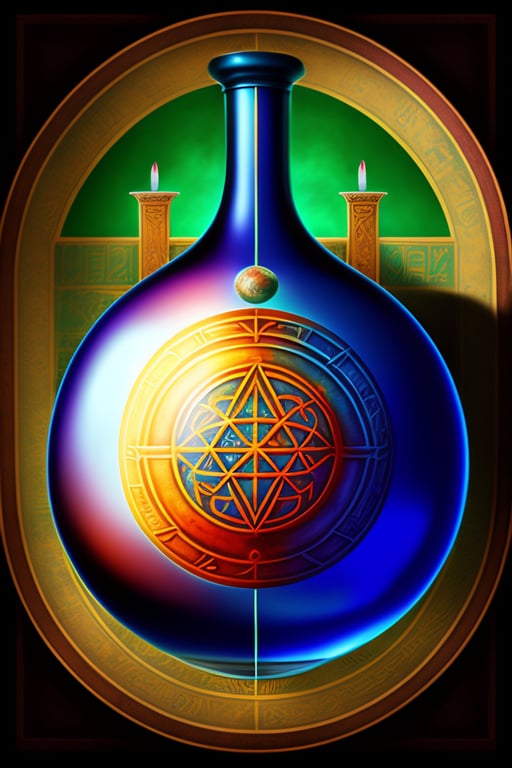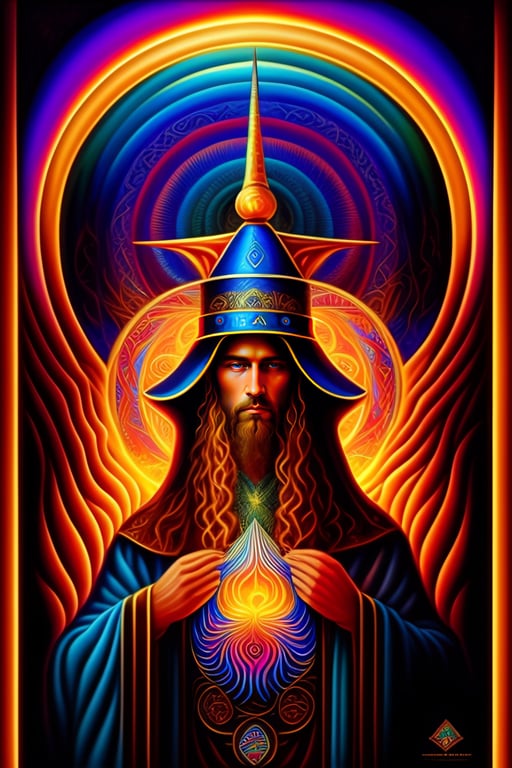The Mystical World of Alchemy: Fact or Fiction?
Part 1: Introduction Alchemy is an ancient practice that dates back thousands of years.
It is often associated with the search for the Philosopher's Stone, a legendary
substance that was said to be capable of transmuting base metals into gold and
silver, as well as providing eternal youth and immortality. Over the years,
alchemy has been associated with various mystical and supernatural beliefs, and
its practitioners have often been viewed as charlatans or even heretics. But is
there any truth to the mystical world of alchemy, or is it all just fiction?
Part 2: The Origins of Alchemy The origins of alchemy can be traced back to ancient Egypt,
where the practice was closely tied to the religious beliefs of the time.
Alchemists believed that the transformation of base metals into gold was a
metaphor for the transmutation of the human soul from a state of spiritual
impurity to a state of enlightenment and purity. Alchemy spread to Greece and
then Rome, where it was influenced by the teachings of philosophers such as
Plato and Aristotle.
Part 3: The Alchemical Process The alchemical process was based on the idea that all matter
is composed of four elements: earth, air, fire, and water. These elements were
believed to correspond to qualities such as solidity, mobility, heat, and
moisture. Alchemists sought to transmute base metals into gold by combining and
manipulating these elements in various ways. They also believed that the human
body was composed of these elements and that by manipulating them, they could
achieve spiritual and physical transformation.
Part 4: Alchemy and Science
Alchemy has often been dismissed as a pseudoscience, but many of its ideas and
practices paved the way for modern chemistry. Alchemists were among the first
to study and experiment with metals, minerals, and other substances. They
developed techniques for distillation, filtration, and precipitation that are
still used in chemistry today. Many of the early alchemists were also skilled
metallurgists who developed new techniques for refining and working with
metals.
Part 5: The Mystical World of Alchemy Despite its scientific contributions, alchemy has always
been associated with mystical and supernatural beliefs. Alchemists believed
that the transmutation of metals was just the beginning of a much greater
spiritual transformation. They sought to uncover the secrets of the universe,
to achieve enlightenment and immortality, and to communicate with higher
beings. Some alchemists claimed to have achieved these goals, while others were
accused of fraud or heresy.
Part 6: The Legacy of Alchemy
Although alchemy is no longer practiced in its original form, its legacy lives
on in many ways. The search for the Philosopher's Stone inspired many later
explorers and scientists to search for new knowledge and to unlock the secrets
of the universe. The alchemical symbolism and mythology have been incorporated
into literature, art, and popular culture, inspiring countless stories and
legends. And the idea of transformation, both physical and spiritual, remains a
powerful and enduring theme in human culture.
Part 7: The mystical
world of alchemy is a fascinating and complex subject that has inspired both
wonder and skepticism over the centuries. While many of its beliefs and
practices may seem far-fetched today, the legacy of alchemy has had a profound
impact on human history and culture. Whether we view it as fact or fiction,
alchemy continues to captivate our imaginations and challenge our understanding
of the world around us.
Part 8: Debunking Alchemical Myths Although alchemy had many scientific and practical
contributions, it also gave rise to many myths and legends that have persisted
over the years. One of the most enduring of these myths is the idea of the
Philosopher's Stone, a magical substance that was believed to be capable of
transmuting base metals into gold and silver. While alchemists did indeed
search for such a substance, there is no evidence that they ever succeeded in
creating it.
Another
myth associated with alchemy is the idea that alchemists were charlatans who
preyed on the gullibility of their patrons. While there were certainly frauds
and quacks among alchemists, many were sincere in their beliefs and dedicated
to their work. Alchemy was a complex and difficult practice that required a
great deal of skill and knowledge, and many alchemists were highly respected
members of their communities.
Finally,
it is often claimed that alchemy was a precursor to modern chemistry, and that
the two disciplines are closely linked. While there is some truth to this
claim, it is also important to recognize the significant differences between
the two. Alchemy was based on mystical and philosophical beliefs, while modern
chemistry is grounded in empirical observation and experimentation. While
alchemy certainly laid the groundwork for many of the scientific discoveries
that came later, it is not accurate to view it as a direct precursor to modern
chemistry.
Part 9: Alchemy in Popular Culture Despite its long history, alchemy remains a popular subject
in modern culture. It has been the subject of countless books, movies, and TV shows,
and its symbolism and mythology continue to inspire artists and writers. Some
of the most famous examples of alchemy in popular culture include the Harry
Potter series, in which alchemy plays a significant role, and the video game
series Fullmetal Alchemist, which centers around a world where alchemy is a
highly respected and sought-after skill.
Part 10: Conclusion
In conclusion, the mystical world of alchemy has captured the imagination of
people for centuries. While it may seem far-fetched to many today, it is
important to recognize the significant contributions that alchemy has made to
human knowledge and understanding. Alchemy paved the way for modern chemistry,
metallurgy, and other sciences, and its symbolism and mythology have had a
profound impact on human culture. While we may never fully understand the
secrets of the universe, the legacy of alchemy continues to inspire us to
search for new knowledge and to unlock the mysteries of the world around us.



Comments
Post a Comment